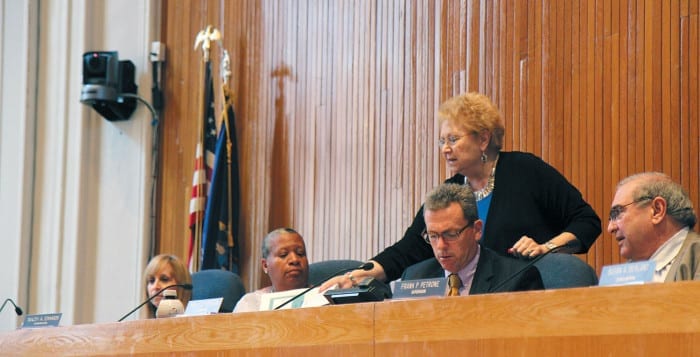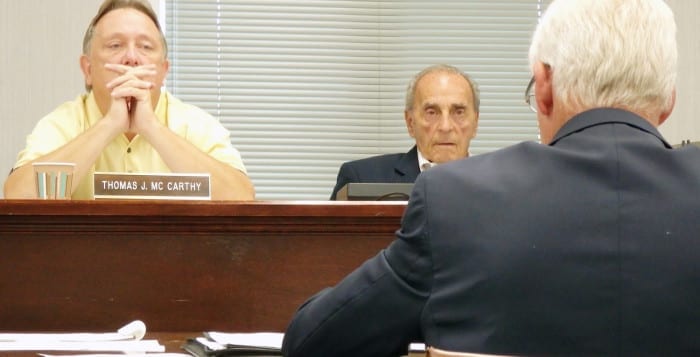Huntington Town Supervisor Frank Petrone (D) unveiled a $188.7 million preliminary 2016 budget on Wednesday. Sept. 16, that reduces spending slightly from this year and stays within a state-mandated cap on property tax levy increases.
If approved, the budget would amount to a $29 increase for the average homeowner, if looking only at the town’s three major funds. The budget is balanced by a 1.3 percent increase in the town’s tax levy, because Huntington is using fewer funds from reserves to balance the budget, according to a town statement.
The town board voted at a meeting on Wednesday, Sept. 16, to schedule an Oct. 6 public hearing on the budget. The public hearing will take place at 6 p.m.
The spending plan is a “no-frills” budget, which is down from this year’s spending by .2 percent, officials said. The budget would maintain current services and reflects a reduction in staffing through attrition —fewer than five employees due to some retirements in the town’s General Services department, Petrone told reporters after the meeting.
There’s $1.9 million more budgeted for the town’s Highway Department, due to last year’s severe winter. That increase was offset by little to no increase in other major town funds and decreased spending in some of the special districts, a town statement said.
One of the issues the supervisor said he’s wrestling with is funding expenses taxpayers may want but that count against the municipality in its state tax cap levy increase calculations.
To that end, Petrone said officials have not included renewing a multi-million dollar Open Space Bond Act town taxpayers voted in favor of to have the town fund green initiatives, park improvements and land purchases, because revenue raised through the act counts into the town’s tax levy. Petrone also said that the town has been considering putting up a referendum to create a parking district, which could have the authority sell bonds to fund a long-desired parking garage in Huntington village, but that would count against the town’s tax levy calculation.
Petrone said he’s been calling on state lawmakers to look at possible revisions to the tax cap law in cases where voters directly choose to tax themselves.
“This 2016 budget preparation presented challenges and realities that will alter how the town does business going forward, without important changes to the tax cap act,” Petrone wrote in his budget message. “While the tax cap act seeks to stabilize the tax base, it also limits our ability to enhance or expand services to our residents.”
Other highlights of the budget include freezing all salaries for elected officials and appointment management, continued focus on building a $1.5 million new animal shelter and implementing design and initial construction of the James D. Conte Community Center at the former Huntington Armory.
The supervisor also proposed a $15 million capital budget that focuses on improvements to the town’s infrastructure, such as the rehabilitation of various plants and pump stations in the Dix Hills Water District to headworks improvements in the Huntington Sewer District. Funding is also included for road rehabilitation, drainage infrastructure and paving, according to the statement.
Victoria Espinoza contributed reporting








